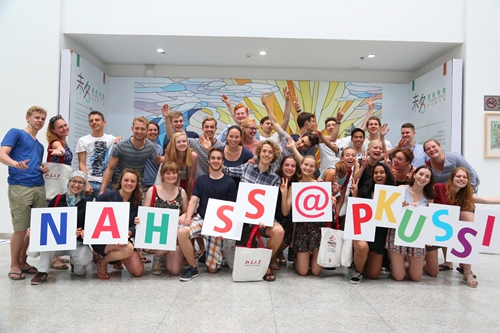Peking University, May 5, 2019: With the year 2019 marks the 100th anniversary of the May Fourth Movement, the embodiment of its spirit also goes through changes and development. The following article is one of the two trying to introduce some of the representative events and figures embodying the spirit of the Movement. Truly, since 1919 countless events and people have contributed to and bring energy into the spirit. Thus, it is impossible to list all but only few of them, with the hope that at least some histories can be retraced, some memories awakened, and some passion rekindled, so that PKUers get ready to embark on the new journey.
Students: leading the trend of society
“Be united for China’s rejuvenation”
On the night of March 20, 1981, the success of the China men's national volleyball team thrilled PKU students. While competing with the team of South Korea, China’s volleyball team won the final three rounds despite losing the first two. Their determination and perseverance got them the precious ticket into the FIVB Volleyball Men's World Championship, and also tremendously encouraged PKU students.
Students came up with the slogan “be united for China’s rejuvenation” immediately after the victory, echoing with society’s thriving spirit for prosperity since the reform and opening up. The slogan swept across the country overnight and greatly inspired Chinese people.
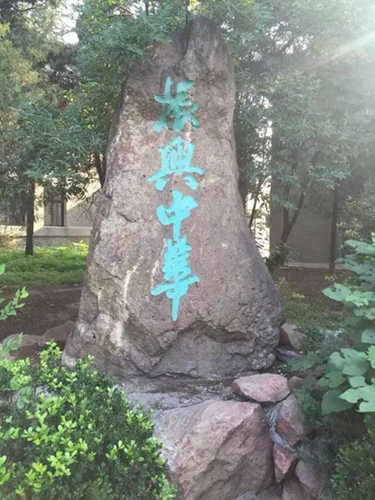
The May Fourth Medals
The May Fourth Medals for Students and the May Fourth Trophies for Class were set up in 1998, before the 100th anniversary of Peking University. Held every two years, the awards are the highest honor for PKU students and classes. Until 2018 there have been ten ceremonies with 93 students and 62 classes awarded. Among them are promising academic talents and social service enthusiasts, all representatives of modern-day spirit of the May Fourth Movement.
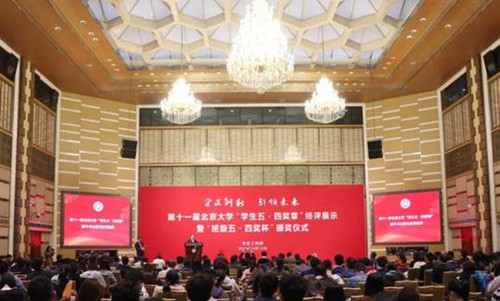
From social movement to academic research and devotion to social welfare, PKU students have shown consistent concern and enthusiasm about China’s development. They do their best to contribute to the economic and social development and play a key part in it through their intelligence and hard work.
Scientific discoveries
In September, 1965, Chinese scientists from Peking University and Shanghai Institute of Organic Chemistry jointly finished the complete synthesis of crystalline bovine insulin. Among the 21 scientists, 7 are from PKU Department of Chemistry. This is the first totally synthetic insulin in crystallized form with full biological activity, immunogenicity and chemical property in the world, thus arousing world-wide interest. In July, 1982, the project was awarded the first prize in China's State Natural Science Award.
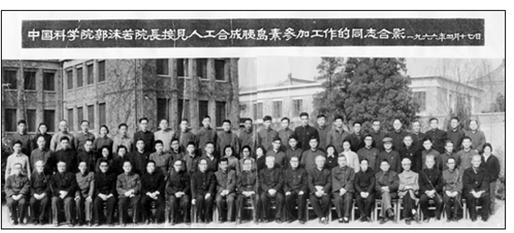
Xu Guangxian is called the founding father of China’s rare earth industry. In 1972, he was dispatched to study the extraction of praseodymium and rubidium from rare earth metals for use as laser materials. By applying his previous research in extracting isotopes of uranium to rare earth extraction, he succeeded. He created an “China Impact”, helping China’s abundant rare earth resources put into production. He was awarded the 2008 Highest Science and Technology Awards. Xu started to teach at Peking University in 1951.
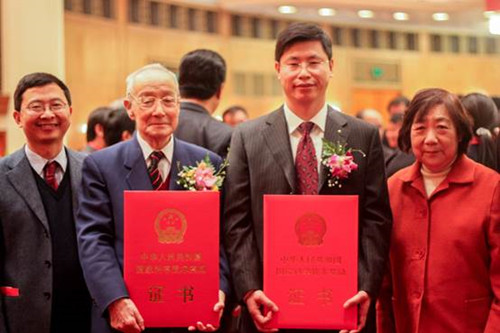
Xu Guangxian (second from the left)
Wang Xuan is named the Father of Laser Photo Typesetting system in China. On September 15, 1980, the first book printed by laser typesetting system was finished, marking the farewell to the era of lead and fire thus the arrival of the era of light and electricity. Wang was awarded the 2001 Highest Science and Technology Awards. He graduated from Peking University in 1958.
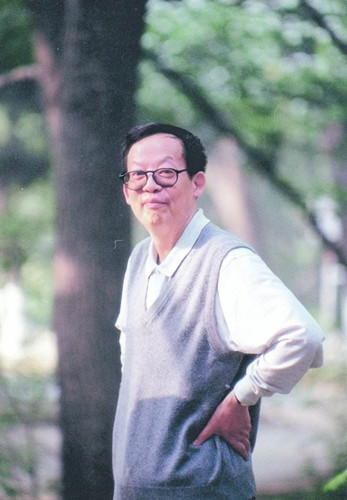
Wang Xuan
Tu Youyou was awarded the 2015 Nobel Prize in Physiology or Medicine. She is the first Chinese Nobel laureate in physiology or medicine and the first female Chinese to receive a Nobel Prize in any category. She is known for her isolation and study of the antimalarial substance Qinghaosu, later known as artemisinin, one of the world’s most-effective malaria-fighting drugs. Thanks to her research, millions of lives are saved in South China, Southeast Asia, Africa, and South America. Tu graduated from Beijing Medical University (now Peking University Health Science Center) in 1955.
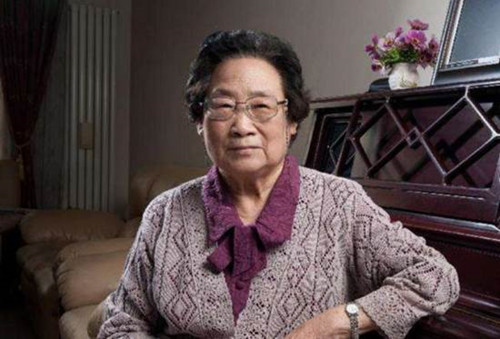
Tu Youyou
Fan Jinshi is honorary president of the Dunhuang Academy in Gansu Province since January 2015. She has been lauded as "Daughter of Dunhuang" for over 50 years of devotion to studying and preserving the area's famous Dunhuang Grottoes since her graduation from Peking University in 1963.
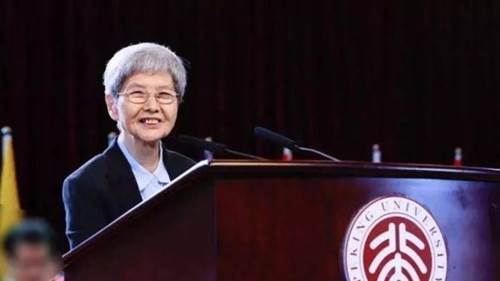
Fan Jinshi
While most of the listed scientific breakthroughs were achieved in the 20th century, these scientists show their remarkable perseverance and outstanding wit despite the unfavorable working conditions in the then underdeveloped China.
International communication
In 2016, about 1960 undergraduates studied abroad. Currently, there are more than 150 EAP programs (Education Abroad Program), including semester exchange, summer school, international internship. Also, each year, there are more than 8000 international students from more than 130 countries study at PKU. PKU has established bilateral cooperation with more than 380 universities and institutes from more than 60 countries and regions.
The International Cultural Festival, founded in 2004, is an important arena for students from around the world to display diverse cultures and deepen mutual understanding.
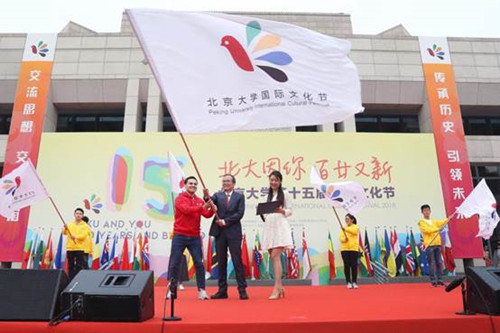
The International Cultural Festival
Institute of South-South Cooperation and Development was announced to set up by President Xi Jinping in 2015 at the United Nations. ISSCAD is not only a high-level degree program focused on national development, but also a think tank committed to governance, international cooperation and exchange, and national policy research. ISSCAD provides both degree education and non-degree executive training programs for mid-level to senior officials, as well as managers and researchers from government, academia, the media, NGOs and other organizations in developing countries.
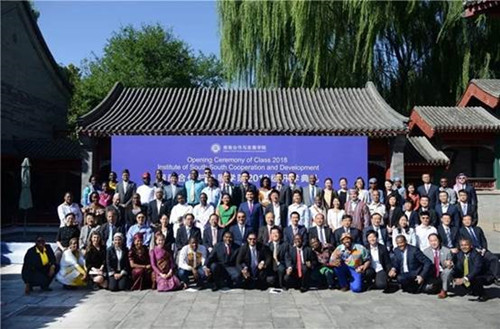 Institute of South-South Cooperation and Development
Institute of South-South Cooperation and Development
The Yenching Academy, established in 2014, aims to build bridges between China and the rest of the world through an interdisciplinary master’s program in China Studies. At the core of the program lies its emphasis on interdisciplinarity and the value it assigns to thinking about China: past, present and future - from both Chinese and international perspectives.
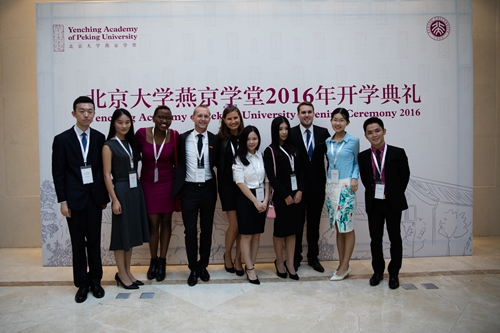 The Yenching Academy
The Yenching Academy
PHBS UK Campus is launched in March, 2018. It marks the first time a Chinese university has independently built and managed its own entity abroad. Also, the establishment of the UK Campus is a monumental development both for PKU and China’s higher education. Located in Boars Hill, England, the campus is aimed at accommodating both international students, admitted by PHBS largely from the EU/UK, and Chinese students for pursuing a portion of their master's degrees in finance, management, economics and MBA. Programs for PHBS UK Campus are designed to focus on professional knowledge of China’s economy, financial market and corporate management.
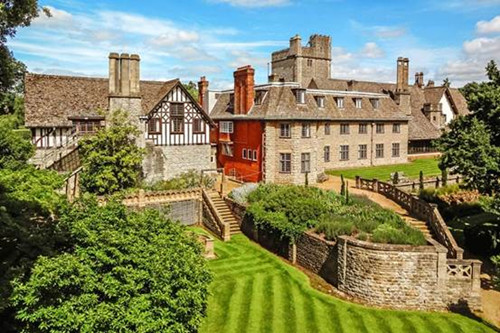 PHBS UK Campus
PHBS UK Campus
With the deepening of globalization, PKU students also actively engage in international communication. Against the background of the new era, the spirit of the May Fourth Movement shows new forms through generations of PKU students. However, its core concepts, patriotism, progress, democracy and science, have remained and will remain continuously.
Written by: Yan Shengnan
Edited by: Zhang Jiang
Source: PKU News (Chinese), PKU OIR







